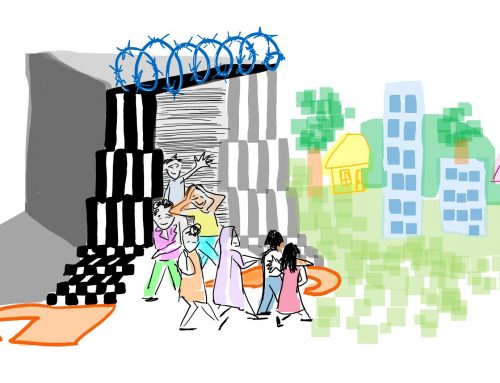At the last quarterly meeting of the members of Detention Forum, we discussed again how we can move forward with our thinking on a new theory of change.
In our blog post of 9th April, we set out some of the key issues we are going to be working on with our 40+ members. To help us to deliver on the change we want to see on immigration detention, we have agreed to set up a number of working groups. These new groups are designed to appeal to the different approaches to change used by our members.
One of the strengths of Detention Forum is that we have a rich diversity of groups in our network and an array of different views about how change happens. In the Forum we respect all of these approaches and want to make space for this variety – we do know that change rarely happens for one reason but for many different reasons.
So, this is the list of our new working groups:
- Grassroots campaigning
Some of our members are focussed on campaigning at the grassroots. This working group will explore the potential of grassroots campaigning to build local support for change on our key issues.
2. Local authority/ devolved nations influencing
Some of our members are interested in promoting our key issues in order to gain influence at local authority, regional or devolved nation level. This working group will explore the potential of building such local authority, regional and national support to increase the pressure for change. This is a focus on other centres of democratic power in the UK other than Westminster.
3. Parliamentary advocacy
Some of our members are focussed on building cross-party support and advocating for policy change within Parliament. This working group will explore the potential of Parliamentary advocacy on our key issues.
4. Home Office influencing
Some of our members are interested in developing more of an insider track to influence officials in the Home Office. This group will feed into existing NGO structures for dealing with the Home Office to ensure there is no duplication, but that more groups are involved in this work. This working group will explore the potential of such influencing work with the Home Office.
5. Building new allies
Some of our members are interested in using their connections to attract new members and build wider support for our work. This working group will explore the potential for us in building new allies and to connect them with our other working groups.
What do you think of this approach? Our members seem keen, and it is great to see so many of them coming forward already to join one of these new working groups. Watch this space!





